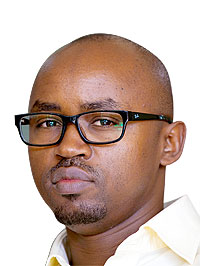It has been a while since I started using the content monitoring service, Google alerts offered by the search engine Google. Email updates on my main query ‘Rwanda’ have been overwhelming so much that I even considered deactivating the service.


It has been a while since I started using the content monitoring service, Google alerts offered by the search engine Google. Email updates on my main query ‘Rwanda’ have been overwhelming so much that I even considered deactivating the service. Not a second passes without an alert popping up on my monitor or cell-phone.But there is pattern of news that has kept me clicking and ‘fingering’ away on my cell-phone. After the 1994 Genocide against the Tutsi, much of the narrative on Rwanda was about the devastation brought upon tiny country by the genocide that left over a million Tutsi. A basket case, many declared.As the Google alerts keep popping, I’m amazed by the change of narrative; Rwanda is now portrayed as a poster child of systems that work. From education, health, governance, the accolades are inundating. I’m always particularly impressed to read from the ‘citizen journalists’; the bloggers many of whom have had a real on ground encounter Rwanda. They come in all tribes; the perky ones who write about our beer and the ‘serious’ ones who are mainly researchers and interns in different institutions across the country. Stories about their encounter with Rwanda and Rwandans are usually a refreshing read.Just recently, I came across an article on how Rwanda was leading the pack in East Africa in making history counterfeit drugs at least on her territory. Rwanda was cited as the only African country among 17 sampled in which no fake tuberculosis or anti-malarial treatments were detected.The success was attributed to ‘technical steps in ensuring the quality of its supply chain, following through on its tendering processes with pharmaceutical suppliers and its ability to enforce a relatively more advanced regulatory system than other countries.’Tendering processes were completed in time and that drugs were delivered where they needed to go. This may be seen as a routine procedure but experience shows that drugs have rotted away in stores in some countries in the region. Gains particularly in the health sector have put Rwanda on a pedestal. Life expectancy has doubled since the Genocide; Rwanda is on course to meet almost all Millennium Development Goals. The universal health insurance scheme has improved access to health for all. Progress in this sector has prompted Paul Farmer of Partners in Health to declare:"Rwanda is honestly starting to change the face of global health,” Farmer said during his recent visit to Rwanda.The ‘P.O.BOX’ generation is giving way to the ‘Whatsapp’ generation in style in Rwanda. Rwanda has been ranked third globally in rolling out the One Lap Top Per Child project. Over 200,000 laptops have been distributed in both urban and rural primary schools in the country. The World Bank Doing Business 2012 report ranks Rwanda as the third easiest place do business in Africa and second five year top global reformer. The country’s tourism sector is flourishing, having raked in $281million in 2012 while the country was recently ranked as the least corrupt in Africa.I could go on.What we read from all this is that the bar has been raised. The simple challenge that the country faces is to how maintain this momentum and perform even better. If not checked, complacency could set in with dire consequences. The challenge that the country’s top leadership has to grapple with is how to nurture the young generation, that it will have the same or even a more pronounced drive to take us to the next level.Professor Manasseh Nshuti, in his serialised newspaper articles, has ably added the ground for debate on what happens after President Paul Kagame’s second and last Constitutional term in 2017. Whatever form the debate takes, it should be about Change with Stability and Continuity. Rwanda can’t afford to get this one wrong.


